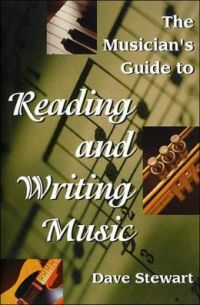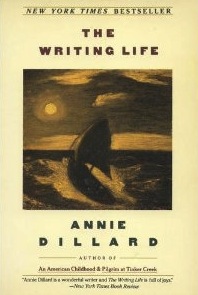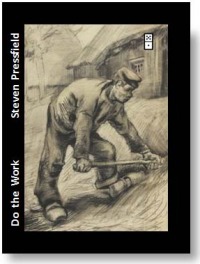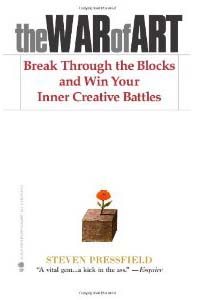Book Reviews (by Kim Gentes)
In the past, I would post only book reviews pertinent to worship, music in the local church, or general Christian leadership and discipleship. Recently, I've been studying many more general topics as well, such as history, economics and scientific thought, some of which end up as reviews here as well.
Entries in writing (4)
Musician's Guide to Reading & Writing Music - Dave Stewart (1999)
 Wednesday, June 5, 2013 at 9:57AM
Wednesday, June 5, 2013 at 9:57AM  Easily the best music theory book I've found for those who know very little theory. Intensely formally trained musicians will balk at this book, but "garage band" musicians will love it. The book covers four main areas: Notation, Rhythm, Chords (4 sections), and Writing Music. The breakdown of the various topics into clean sections makes it easy to use the book as a reference for later. I often grab it when I need to refer back to some point on chords (for which it has extensive information). In addition to a good structured outline to the book, it starts off easily and takes nothing for granted- you learn as quick as you can pick up, because he starts off assuming you need to learn everything from timing to notes and more. If you are a beginner, its all there, if you somewhat knowledgeable you can move along quicker.
Easily the best music theory book I've found for those who know very little theory. Intensely formally trained musicians will balk at this book, but "garage band" musicians will love it. The book covers four main areas: Notation, Rhythm, Chords (4 sections), and Writing Music. The breakdown of the various topics into clean sections makes it easy to use the book as a reference for later. I often grab it when I need to refer back to some point on chords (for which it has extensive information). In addition to a good structured outline to the book, it starts off easily and takes nothing for granted- you learn as quick as you can pick up, because he starts off assuming you need to learn everything from timing to notes and more. If you are a beginner, its all there, if you somewhat knowledgeable you can move along quicker.
This is a compressed music theory book that is easy to pick up and learn from. It is tremendously helpful for musicians with gift and abilities, but little formal musical training. It gives the basics in excellent format (simple and straight forward) and style (humorous). The pithy style of this book makes it like reading a music book written by David Letterman.
I recommend this book to two crowds: first, if you are a rock musician that has played for years and just never got around to having a good grasp of theory, this book is made for you. Second, if you are a worship leader or musician in a local church but likewise finds yourself with a less than clear understanding of the all the salient musical theory points, then you will likely be helped a lot by reading this book as well.
When I first read this book (back in 1999) I bought a printed paperback copy (literally just 100 pages long). When I lost the book about 10 years later, I bought another copy, simply because it is such a helpful reference. The book is now available on Kindle/eBook format too.
Amazon Link: http://amzn.to/12sLxBe
Review by Kim Gentes
The Writing Life - Annie Dillard (1989)
 Tuesday, January 15, 2013 at 10:25AM
Tuesday, January 15, 2013 at 10:25AM  Of late, I have been reading more books on, ironically, writing. A friend recommended one to me which I hadn't heard of. It was Annie Dillard's "The Writing Life". As I began it, I was warmed by her whimsical style and insightful prose. But soon enough, I was getting hungry for the "meat" of a writer "advice" book. Then it hit me. Her device to teach the writing life was to example it, not dictate its proofs in three-point style.
Of late, I have been reading more books on, ironically, writing. A friend recommended one to me which I hadn't heard of. It was Annie Dillard's "The Writing Life". As I began it, I was warmed by her whimsical style and insightful prose. But soon enough, I was getting hungry for the "meat" of a writer "advice" book. Then it hit me. Her device to teach the writing life was to example it, not dictate its proofs in three-point style.
I am a simple kind of thinker in this regard, as my natural tendency is to take everyone at their word. She had titled the book "The Writing Life", and I thus assumed she would explain it in the book. I wouldn't have expected her to live it. But this is what Annie Dillard does. She explores with narrative prose the way her own life has been fashioned by its conversations, moments, people and events. She arranges those as elements of a real story- her story- and allows you to look in and see if it reflects something of the human soul which can ignite your own writing life. And it does.
Don't get me wrong, there are plenty of points that could fill a "tips and thoughts for aspiring writers" textbook, and they are distributed liberally throughout the pages of this work. But Dillard knows that they way the stick to us is to pair them with our hearts through her own well written words. The first of such moments for me happened when I was almost fumbling through the early chapters and one of those word-sculpted moments hit me square across the mind-
There is no shortage of good days. It is good lives that are hard to come by. A life of good days lived in the senses is not enough. The life of sensation is the life of greed; it requires more and more. The life of the spirit requires less and less; time is ample and its passage sweet. Who would call a day spent reading a good day? But a life spent reading—that is a good life.1
Write as if you were dying. At the same time, assume you write for an audience consisting solely of terminal patients. That is, after all, the case. What would you begin writing if you knew you would die soon? What could you say to a dying person that would not enrage by its triviality?2
A well-known writer got collared by a university student who asked, “Do you think I could be a writer?” “Well,” the writer said, “I don’t know…. Do you like sentences?” The writer could see the student’s amazement. Sentences? Do I like sentences? I am twenty years old and do I like sentences? If he had liked sentences, of course, he could begin, like a joyful painter I knew. I asked him how he came to be a painter. He said, “I liked the smell of the paint.”3
You will get several points of importance for understanding "The Writing Life" in this book, but along the way Dillard seems more concerned that you actually live and experience it than recite a formula for its vocational success. A thoughtful, uplighting and good book.
Amazon Link: http://amzn.to/10x9sxP
Review by Kim Gentes
1. Dillard, Annie (2009-10-13). The Writing Life (pp. 32-33). Harper Perennial. Kindle Edition.
2. Ibid., p. 68
3. Ibid., p. 70
 annie dillard,
annie dillard,  author,
author,  books,
books,  creative techniques,
creative techniques,  dillard,
dillard,  inspiration,
inspiration,  review,
review,  the writing life,
the writing life,  writing in
writing in  Art,
Art,  Book Review,
Book Review,  Literature,
Literature,  Resource,
Resource,  Writing
Writing Do The Work - Steven Pressfield (2011)
 Saturday, December 29, 2012 at 7:33AM
Saturday, December 29, 2012 at 7:33AM  After reading Steven Pressfield's "The War of Art", I jumped at the get-it-done companion called "Do The Work".
After reading Steven Pressfield's "The War of Art", I jumped at the get-it-done companion called "Do The Work".
There are two reactions to it that must be clear. First, if you are a technical person who is not a natural creative- this book is perfect for you. Second, if you are a natural creative who has too many ideas and not enough completed projects- this book is also for you. The problem is, you must digest it with the right understanding of who you truly are. Let me explain.
Pressfield's approach is attuned mostly to technical people who don't trust their creative juices. This group of people understands the nuances of self-criticism, evaluation, re-writing and more. What they struggle with is that they over-analyze and over-prepare so much, they become weighed down by the weight of this mind-heavy preparation and either never start the project in earnest or become crushed under their self-criticism. Pressfield has excellent advice that will allow those people to properly set aside self-critism to a proper time in the process. The goal for them is to get them moving and trusting the creative process and ideas in them.
For the truly creative person with little ability to filter and less ethic to complete a project, "Do The Work" lays out a plan that they can take advantage of their creative juices but put meat on the bones before the next wind blows in and grabs the creative's attention away from their current work. For those people- read the book, and do the work. Follow the instructions and channel the inspiration as told by the author.
The problem with this book is that the technical or creative person may well misunderstand who they are and not approach this kind of advice properly. The book is solid, but it doesn't help the reader distinguish how to navigate their absorption of the material. Hence, I see several reviews of this book from what I call "high technicians" (people who aren't true creatives) who criticise the book for encouraging people to follow their instincts. But true creatives should ignore those reviews. This book is easily interpretted for true creatives and they can take the writer at face value and follow instructions as stated. For technicians (who often erroneously think they are creatives), you should realize that you will automatically have the tools of self-criticism and correction that will allow you to make the detail and methodical adjustments that every project needs in the revision phase- don't misinterpret Pressfield's guidance to let the inspiration "flow" in the beginning of the creative cycle sound like "throw caution to the wind" for the entire process. A proper reading of hte book and self-awareness and sel-understanding will make this clear.
Personally, I came away with 2 excellent and helpful tips from the book. Important things that I will never forget and have already begun to use. Because Pressfield assumes that deeply creative people will be the users of his book, he doesn't take time to nuance how the book should be approached. I felt this might help some of those who were coming at "Do The Work" from a couple different vantage points.
In light of that, it's a very good book and I highly recommend it.
Amazon Book Link: http://amzn.to/Wbs0M0
Review by Kim Gentes
The War of Art - Steven Pressfield (2002)
 Thursday, November 29, 2012 at 5:10PM
Thursday, November 29, 2012 at 5:10PM  I don't like motivational junk. I call it crap. When people try to sell me their wares as a way of "encouraging" me in some way it just doesn't sit right with me. For that reason, you have to understand that I would never in a million years have purposely went to buy this book. I thought I was buying a book about being a writer and some "tricks of the trade". But about 10 pages into it, I realized I'd been duped. I was kinda upset. (Keep reading! I was missing the point!) But since I had already bought it and simply wanted to put it away, I figured I'd better get through it.
I don't like motivational junk. I call it crap. When people try to sell me their wares as a way of "encouraging" me in some way it just doesn't sit right with me. For that reason, you have to understand that I would never in a million years have purposely went to buy this book. I thought I was buying a book about being a writer and some "tricks of the trade". But about 10 pages into it, I realized I'd been duped. I was kinda upset. (Keep reading! I was missing the point!) But since I had already bought it and simply wanted to put it away, I figured I'd better get through it.
That was the last point at which I didn't like the book. In about 2 more pages (and for the rest of the book), I got my butt kicked. Author Steven Pressfield talks as a creative person to other creatives, and tackles just one topic- resistance. This is the singular name that Pressfield gives to the demon that haunts every person who ever tried to do anything beyond themselves- in art, science, culture, business and life. Pressfield defines, explores, warns and outright swears at the demon of resistance. Pressfield is ticked off, and he wants his reader to join him- not in a soppy emotional healing time, but in an outright strategy of war against the only enemy likely to stop you from creating your unique art: your own internal resistance.
I've heard these concepts before in different ways, but they've never struck home as well as they have here. "The War of Art" is not only sharp and pointed, it is blissful and witty. It examples its content by explaining how the author himself got passed resistance to even write the book. It's not cute, but it is effective, and funny, too!
If you hate motivational speeches and don't want to waste money on feel-good crap, this book is the best thing for creatives since their mom slapped them up the side of the head and said "do your homework".
The book is short (just 190 pages) and it is written directly to authors, painters, musicians, creatives, entrepreneurs, inventors and anyone who is trying to start something (anything) of value that is significantly challenging. This book is written from an artist/writer's perspective specifically, not of the Christian "self-help" variety, and if you are easily offended by occasional swear words, you may find this book hits you with occasional bursts of Pressfield's verbal punches.
That said, it's a great book and I very highly recommend it.
Amazon Book Link: http://amzn.to/Simc47
Review by Kim Gentes
 Steven Pressfield,
Steven Pressfield,  The War of Art,
The War of Art,  artists,
artists,  author,
author,  book review,
book review,  going pro,
going pro,  motivation,
motivation,  pressfield,
pressfield,  writer,
writer,  writing,
writing,  writing techniques in
writing techniques in  Art,
Art,  Book Review,
Book Review,  Creation,
Creation,  History,
History,  Literature,
Literature,  Writing
Writing